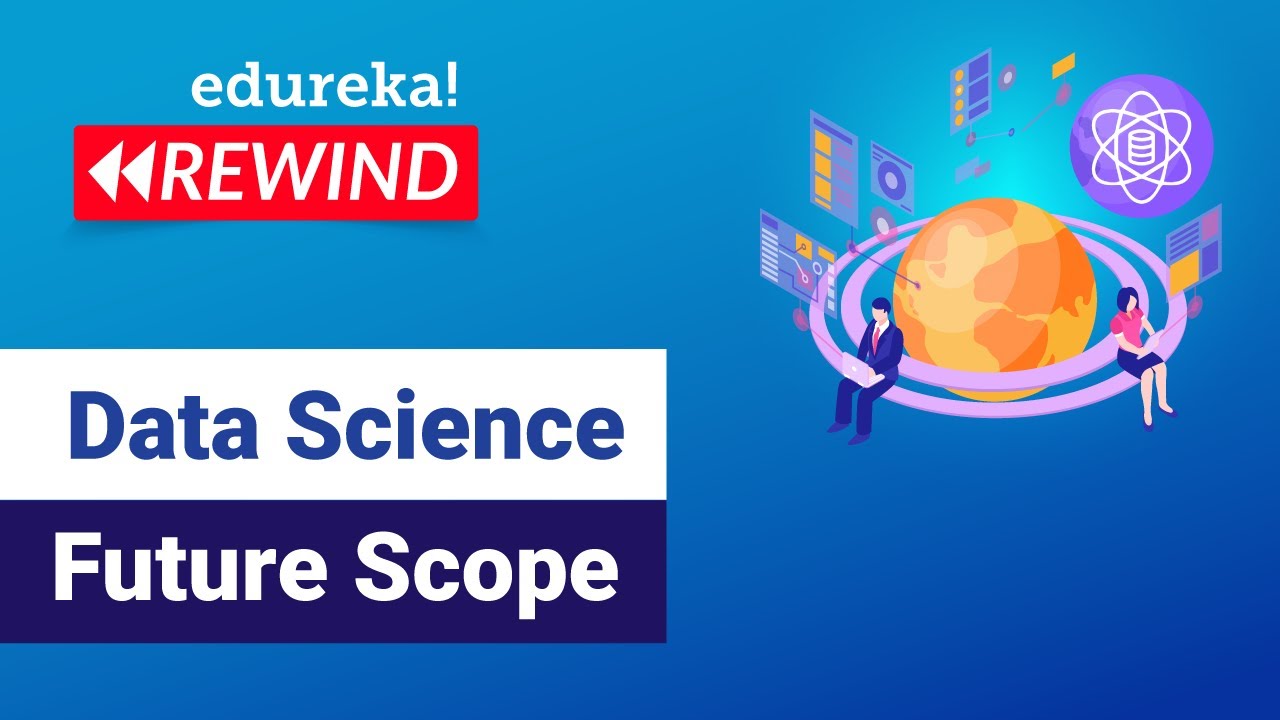
The Future of Data Science: Transforming Businesses Across Industries

- 1. The Role of Data Science in Shaping the Future of Businesses
- 2. How Data Science is Transforming Industries: A Look into the Future
- 3. Future Trends in Data Science: What Businesses Need to Know
- 4. Case Studies: Successful Business Implementations of Data Science
- 5. Preparing Your Business for the Future: Leveraging Data Science Effectively
1. The Role of Data Science in Shaping the Future of Businesses
Data science has emerged as a pivotal force in transforming how businesses operate, enabling them to make data-driven decisions that enhance efficiency and drive growth. By leveraging vast amounts of data, organizations can uncover valuable insights that were previously inaccessible. This shift towards data-centric strategies is reshaping industries, allowing companies to adapt quickly to market changes and customer preferences.
Enhanced Decision-Making
One of the most significant impacts of data science is its ability to improve decision-making processes. Businesses can utilize predictive analytics to forecast trends, understand customer behavior, and optimize operations. This results in informed choices that minimize risks and maximize returns. Key benefits include:
- Predictive Analytics: Anticipating future trends based on historical data.
- Real-Time Insights: Gaining immediate feedback on business performance.
- Customer Segmentation: Identifying distinct customer groups for targeted marketing.
Operational Efficiency
Data science also plays a crucial role in enhancing operational efficiency. By analyzing data from various sources, businesses can streamline processes, reduce waste, and optimize resource allocation. For instance, machine learning algorithms can identify bottlenecks in supply chains or production lines, enabling organizations to implement corrective measures swiftly. This leads to significant cost savings and improved productivity.
Innovation and Competitive Advantage
Moreover, data science fosters innovation by enabling businesses to experiment and iterate on new products and services. By analyzing customer feedback and market trends, companies can develop solutions that better meet consumer needs. This innovative approach not only enhances customer satisfaction but also provides a competitive edge in a crowded marketplace. Organizations that harness the power of data science are better positioned to respond to challenges and seize new opportunities.
2. How Data Science is Transforming Industries: A Look into the Future
Data science is not just a trend; it is a transformative force that is reshaping various industries and redefining how businesses operate. From healthcare to finance, the integration of data-driven decision-making is revolutionizing processes, enhancing efficiency, and creating new opportunities. As we look toward the future, the implications of data science are poised to become even more profound, influencing everything from customer engagement to operational strategies.
The Impact on Healthcare
In the healthcare sector, data science is paving the way for personalized medicine and improved patient outcomes. By analyzing vast amounts of patient data, healthcare providers can identify patterns and predict health risks, leading to proactive interventions. For instance, predictive analytics can help in early detection of diseases, while machine learning algorithms can assist in diagnosing conditions more accurately. The future of healthcare will increasingly rely on data science to enhance treatment plans and streamline operations, making care more effective and accessible.
Revolutionizing Retail and E-commerce
The retail industry is also undergoing a significant transformation due to data science. Retailers are leveraging customer data to optimize inventory management, personalize marketing strategies, and enhance the overall shopping experience. By utilizing advanced analytics, businesses can forecast demand more accurately and tailor their offerings to meet consumer preferences. As technology continues to evolve, we can expect to see even more sophisticated applications, such as AI-driven chatbots for customer service and augmented reality experiences that bridge the gap between online and in-store shopping.
Data Science in Finance
In finance, data science is playing a crucial role in risk management and fraud detection. Financial institutions are harnessing the power of big data to analyze transactions in real-time, allowing them to identify anomalies and potential fraudulent activities quickly. Machine learning models are becoming essential tools for credit scoring and investment strategies, enabling companies to make informed decisions based on comprehensive data analysis. As we move forward, the reliance on data science in finance will only grow, driving innovation and enhancing security measures across the industry.
Key Takeaways:
- Data science is transforming healthcare through personalized medicine and predictive analytics.
- Retailers are optimizing operations and customer experiences by leveraging customer data.
- In finance, data science enhances risk management and fraud detection capabilities.
3. Future Trends in Data Science: What Businesses Need to Know
As data science continues to evolve, businesses must stay ahead of the curve to leverage its full potential. One significant trend is the growing emphasis on automated machine learning (AutoML). This technology simplifies the process of model selection and hyperparameter tuning, allowing non-experts to build predictive models without extensive programming knowledge. As AutoML tools become more sophisticated, businesses can expect to see a democratization of data science, enabling a broader range of employees to harness data insights.
Another emerging trend is the integration of artificial intelligence (AI) and machine learning (ML) with real-time analytics. Companies are increasingly adopting these technologies to analyze streaming data, enabling them to make instantaneous decisions based on current information. For instance, industries like finance and e-commerce are utilizing real-time data analysis to enhance customer experiences and mitigate risks. This shift towards real-time insights is essential for maintaining a competitive edge in today's fast-paced market.
Moreover, the importance of data privacy and ethics is becoming more pronounced as regulations tighten globally. Businesses will need to prioritize ethical data practices and invest in technologies that ensure compliance with laws such as GDPR and CCPA. This trend not only helps avoid legal pitfalls but also builds consumer trust, which is crucial for long-term success. Companies that adopt transparent data practices and prioritize consumer privacy are likely to stand out in the increasingly crowded marketplace.
Finally, the rise of edge computing is set to transform how businesses handle data processing. By processing data closer to the source, companies can reduce latency and bandwidth usage, resulting in faster analytics and improved performance. This trend is particularly relevant for industries that rely on IoT devices, as it allows for more efficient data collection and analysis. Embracing edge computing can provide businesses with timely insights that drive operational efficiency and enhance decision-making capabilities.
4. Case Studies: Successful Business Implementations of Data Science
Data science has revolutionized various industries by enabling businesses to leverage large volumes of data for enhanced decision-making and operational efficiency. Numerous organizations have successfully implemented data science techniques, yielding impressive results that showcase the potential of data-driven strategies.
1. Retail Sector: Target's Predictive Analytics
One of the most notable case studies in the retail sector is Target's use of predictive analytics to understand customer behavior. By analyzing purchasing patterns and demographic data, Target was able to predict customer needs and preferences with remarkable accuracy. This led to the development of personalized marketing campaigns, significantly increasing customer engagement and sales. For instance, the retailer famously identified pregnancy-related purchases, allowing them to target expectant mothers with tailored promotions, which ultimately boosted their revenue.
2. Healthcare: Mount Sinai's Patient Care Improvement
In the healthcare sector, Mount Sinai Health System in New York has successfully implemented data science to enhance patient care. By employing machine learning algorithms to analyze patient data, the hospital was able to identify at-risk patients and intervene before serious health issues arose. This proactive approach not only improved patient outcomes but also reduced hospital readmission rates. By integrating data science into their operational workflow, Mount Sinai has demonstrated the potential for data-driven strategies to transform healthcare delivery.
3. Finance: JPMorgan Chase's Fraud Detection
JPMorgan Chase exemplifies the successful application of data science in the finance industry through its advanced fraud detection systems. By utilizing sophisticated algorithms and machine learning techniques, the bank analyzes transaction patterns to detect anomalies that may indicate fraudulent activity. This implementation has not only enhanced security but also significantly reduced financial losses due to fraud. The bank's ability to process vast amounts of transaction data in real-time showcases how data science can lead to better risk management and customer trust.
4. Transportation: Uber's Dynamic Pricing
Uber's dynamic pricing model is another compelling case study illustrating the power of data science in transportation. By analyzing factors such as demand, traffic conditions, and local events, Uber adjusts its prices in real-time to optimize supply and demand. This data-driven approach has enabled the company to maximize profits while ensuring that riders receive timely service. The success of Uber's pricing strategy demonstrates how data science can provide a competitive edge in rapidly changing markets.
5. Preparing Your Business for the Future: Leveraging Data Science Effectively
In today's fast-paced digital landscape, leveraging data science effectively is crucial for preparing your business for the future. By harnessing the power of data, companies can make informed decisions, identify emerging trends, and enhance customer experiences. A strategic approach to data science not only improves operational efficiency but also provides a competitive edge in the marketplace.
Key Strategies for Effective Data Science Implementation:
- Invest in the Right Tools: Utilize advanced analytics platforms and machine learning tools that can process large volumes of data quickly and accurately.
- Build a Skilled Team: Employ data scientists and analysts who possess the technical expertise and domain knowledge necessary to derive actionable insights from data.
- Focus on Data Quality: Ensure that the data collected is accurate, relevant, and up-to-date to facilitate reliable analysis and decision-making.
- Encourage a Data-Driven Culture: Foster an environment where data-driven decision-making is prioritized at all levels of the organization.
To effectively leverage data science, businesses should adopt a clear roadmap that aligns data initiatives with organizational goals. This involves setting specific objectives, identifying key performance indicators (KPIs), and continuously monitoring progress. By integrating data science into core business strategies, organizations can anticipate market shifts, optimize operations, and enhance customer satisfaction.
Additionally, embracing advanced technologies such as artificial intelligence (AI) and predictive analytics can further enhance data science capabilities. These tools enable businesses to uncover hidden patterns, forecast future trends, and personalize customer interactions. As a result, organizations that prioritize data science are not only better prepared for future challenges but also positioned to seize new opportunities in an ever-evolving marketplace.
Did you find this article helpful? The Future of Data Science: Transforming Businesses Across Industries See more here General.
Leave a Reply





Related posts